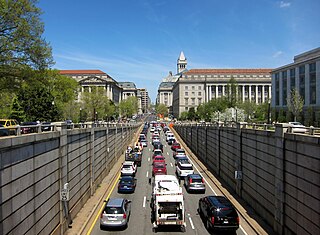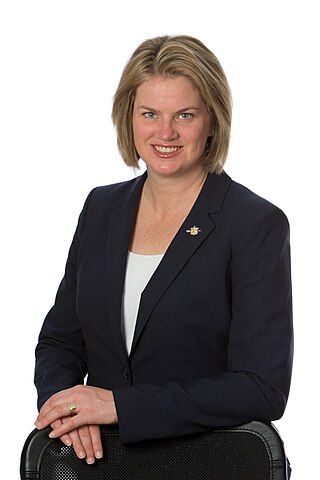
British Columbia is the westernmost province of Canada. Situated between the Pacific Ocean and the Rocky Mountains, the province has a diverse geography, with rugged landscapes that include rocky coastlines, sandy beaches, forests, lakes, mountains, inland deserts and grassy plains. British Columbia borders the province of Alberta to the east; the territories of Yukon to the north; the Northwest Territories to the northeast; the US states of Washington, Idaho and Montana to the south; and Alaska to the northwest. With an estimated population of over 5.5 million as of 2023, it is Canada's third-most populous province. The capital of British Columbia is Victoria, while the province's largest city is Vancouver. Vancouver and its suburbs together make up the third-largest metropolitan area in Canada; with the 2021 census recording 2.6 million people in Metro Vancouver.

Prince George is a city in British Columbia, Canada, with a city population of 76,708 and a metro census agglomeration population of 89,490. It is often called the province's "northern capital". It is situated at the confluence of the Fraser and Nechako rivers.
British Columbia Ferry Services Inc., operating as BC Ferries (BCF), is a former provincial Crown corporation, now operating as an independently managed, publicly owned Canadian company. BC Ferries provides all major passenger and vehicle ferry services for coastal and island communities in the Canadian province of British Columbia. Set up in 1960 to provide a similar service to that provided by the Black Ball Line and the Canadian Pacific Railway, which were affected by job action at the time, BC Ferries has become the largest passenger ferry line in North America, operating a fleet of 41 vessels with a total passenger and crew capacity of over 27,000, serving 47 locations on the B.C. coast.

Prince Rupert is a port city in the province of British Columbia, Canada. Its location is on Kaien Island near the Alaskan panhandle. It is the land, air, and water transportation hub of British Columbia's North Coast, and has a population of 12,220 people as of 2016.

Fort St. John is a city located in northeastern British Columbia, Canada. The most populous municipality in the Peace River Regional District, the city encompasses a total area of about 22 km2 (8.5 sq mi) with 21,465 residents recorded in the 2021 Census. Located at Mile 47 of the Alaska Highway, it is one of the largest cities between Dawson Creek, British Columbia and Delta Junction, Alaska. Established in 1794 as a trading post, Fort St. John is the oldest European-established settlement in present-day British Columbia. The city is served by the Fort St. John Airport. The municipal slogan is Fort St. John: The Energetic City.

Clearwater is a district municipality in the North Thompson River valley in British Columbia, Canada, where the Clearwater River empties into the North Thompson River. It is located 124 km (77 mi) north of Kamloops. The District of Clearwater was established on December 3, 2007, making it one of the newest municipalities in British Columbia. It is near Wells Gray Provincial Park and is surrounded by the Trophy Mountains, Raft Mountain and Dunn Peak.

Smithers is a town in northwestern British Columbia, approximately halfway between Prince George and Prince Rupert. With a population of 5,351 in 2016, Smithers provides service coverage for most of the Bulkley Valley.
Fort Nelson is a community in northeast British Columbia, Canada, within the Northern Rockies Regional Municipality (NRRM). It held town status prior to 6 February 2009, when it amalgamated with the former Northern Rockies Regional District to form the NRRM, becoming its administrative centre. The NRRM is the first regional municipality in the province.

Greyhound Canada Transportation ULC began as a local British Columbia bus line in the early 1920s, expanded across most of Canada, and became a subsidiary of the US Greyhound in 1940.

HandyDART is an accessible transit service in British Columbia that uses vans or small buses to transport disabled or elderly passengers who cannot use the normal transit system. This service provides door-to-door service and is available in all of the province's larger centres, as well as in many smaller communities.
BC Transit is a provincial crown corporation responsible for coordinating the delivery of public transportation within British Columbia, Canada, outside Greater Vancouver. BC Transit is headquartered in Victoria, British Columbia. In 2022, the system had a ridership of 22,487,400, or about 96,800 per weekday as of the second quarter of 2023.

Chetwynd is a district municipality located in the eastern foothills of the Rocky Mountains, in northeastern British Columbia, Canada. Situated on an ancient floodplain, it is the first town eastbound travellers encounter after emerging from the Rockies along Highway 97, and acts as the gateway to the Peace River Country. The town developed during the construction of infrastructure through the Rocky Mountains in the 1950s; additionally, it was used as a transshipment point during the building of hydroelectric dams, in the 1960s and 1970s, and the new town of Tumbler Ridge, in the early 1980s. Home to approximately 2,600 residents, the town’s population has increased little—if at all—since the 1980s, but is significantly younger than the provincial average.

The 99 B-Line is an express bus line with bus rapid transit elements in Metro Vancouver, British Columbia, Canada. It travels along Broadway, a major east–west thoroughfare, and connects the University of British Columbia (UBC) to Commercial–Broadway station on the SkyTrain system. It is operated by Coast Mountain Bus Company and funded by TransLink.

Washington, D.C. has a number of different modes of transportation available for use. Commuters have a major influence on travel patterns, with only 28% of people employed in Washington, D.C. commuting from within the city, whereas 33.5% commute from the nearby Maryland suburbs, 22.7% from Northern Virginia, and the rest from Washington, D.C.'s outlying suburbs.

Powder King Mountain Resort, commonly referred to simply as Powder King, is located in the Pine Pass area of the Northern Rockies of British Columbia's Northeastern Interior. It is the only year-round destination alpine resort in North America found alongside a major route. Ranked #4 in all of North America for snow, the area boasts the best snow quality of all Canadian ski hills.

The Jasper–Prince Rupert train is a Canadian passenger train service operated by Via Rail between Jasper, Alberta, Prince George and Prince Rupert in British Columbia.

Kamloops Transit operates the public bus transit system in the City of Kamloops in south central British Columbia, Canada. The system consists of 18 regularly scheduled routes, one Sunday route, several school specials and handyDART customized service for those with a disability. Funding is provided through a partnership between the City of Kamloops and BC Transit, the provincial agency which plans and manages municipal transit systems. Operations are contracted out to FirstCanada ULC. The transit system began development in 1975 after the Province of British Columbia began offering subsidies to help operate local transit systems in local communities.

Kelowna Regional Transit System is operated by FirstCanada, providing public bus transportation services in part of the central Okanagan Valley of British Columbia, Canada. Funding for the transit system is shared between the City of Kelowna, Regional District of Central Okanagan, District of Lake Country, City of West Kelowna, Westbank First Nation and BC Transit, while the planning and routing decisions are primarily made by Kelowna City Council. Kelowna Regional Transit was one of the first public transit systems in Canada to have double-decker buses, and the first in Canada to have hybrid buses on regular routes. The hybrid and double deckers buses have since been relocated to Victoria.

Jennifer Rice is a Canadian politician, who was elected to the Legislative Assembly of British Columbia to represent the electoral district of North Coast. She is a member of the BC New Democratic Party. Rice was first elected as a member of legislative assembly (MLA) in the 2013 provincial election and was re-elected in the 2017 election. In the 40th Parliament of British Columbia she acted as the official opposition's critic for northern and rural economic development and deputy critic for children and family development and introduced one private member bill, the Drinking Water Protection Amendment Act regarding regularizing testing of drinking water in schools.

The Bellingham Cruise Terminal is a ferry terminal and transportation hub located in Bellingham, Washington, United States. It is near the Fairhaven neighborhood and was completed in 1989 and provides easy interchange between various modes of transportation. Operated by the Port of Bellingham the facility serves over 200,000 passengers a year.


















